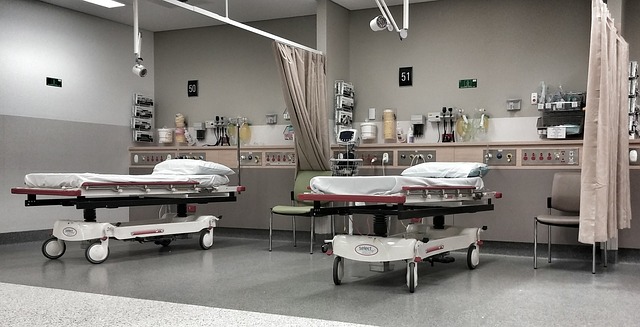The Western Cape Department of Health has made the decision to restrict visitation at Cape hospitals following the sharp uptick of patients who require COVID-19 care.
“We know that you want to visit your loved ones in hospital, but to limit any potential risk of possible transmission of COVID-19, we must continue to restrict in-hospital visitations. This is in line with the principles of social distancing to limit interaction and in doing so slowing and stopping the spread of COVID-19,” the Department said via a statement.
No visitors to public health facilities:
Health facilities in the Western Cape are still subject to strict adherence to health protocols. If you have any questions about visitation restrictions, please call the hospital in question to enquire.
“We understand that it is difficult not being able to visit your loved ones but we ask for your understanding and cooperation – together we can limit the spread of COVID-19,” the Department said.
No person will be allowed inside Western Cape Government Health facilities without wearing a cloth mask covering their nose and mouth.
“When accessing any of our facilities, you can expect to be asked a number of questions before entry will be permitted. This is to ensure that no visitor matching the case definition of COVID-19 or displaying flu-like symptoms enters the facility for visitation. Please answer truthfully and help us to keep our staff and other patients safe.”
Amended services at hospitals:
With the increase in hospitalisations due to the second wave of COVID-19, Western Cape Government Hospitals must change how to provide healthcare services to ensure they have capacity to take care of patients who need immediate care.
Changes in the current service delivery offering include:
– Visitation is restricted
– Non-urgent outpatient appointments will be postponed and patients given alternative dates
– Non-urgent elective surgery will be postponed and patients provided with a later date
– Patients who are in hospital but are stable will be discharged for further management at home or at a step-down facility
– Outreaches from District and Regional hospitals will be suspended
– Patients are urged to only access the Emergency Centre for emergencies. Non-emergencies are to access healthcare services at nearest clinic
Emergency services that will continue:
– Emergency surgery
– Obstetric surgery
– High risk obstetric clinic
– Fracture clinic
– Limited eyecare and eye surgery
– Allied health for emergency cases
Amended services at clinics:
– Medication delivery to stable chronic patients will continue
– Medication will be given for longer periods where possible
– Outreaches will be postponed
– Non-urgent appointments will be postponed and given an alternative date
– Essential services will continue, such as TB and HIV screening and treatment, chronic care, family planning, immunisations, and antenatal and postnatal care
– Dental services limited to emergencies only
– Eyecare services limited to emergencies only
– MOU’s (midwife obstetric units) will continue to operate
Patients are encouraged to make an appointment before visiting a healthcare facility by calling their local clinic. Patients in the Cape Metro can also access the Pocket Clinic telehealth service from their cellphone (WhatsApp) by sending “Hi” to 087 240 6122. Use Pocket Clinic to update your contact details, query your chronic medication delivery, and to confirm an existing appointment before going to the clinic.
“Coronavirus spreads where people gather, including at public health facilities. Only visit the clinic or hospital emergency centre when you really have to. Always wear a clean cloth mask over your mouth and nose, and keep a distance of 1.5 m from other people,” the Department said.
Stay safe:
– Always wear a cloth mask covering your nose and mouth when leaving your house
– Protect your air space by keeping a distance of 1.5 m from others
– Socialise outdoors, with a small number of people, for a limited time
– Avoid confined spaces with poor ventilation, crowds, and close contact with others
– Keep doors and windows open for good ventilation when indoors
– Stay home if you feel sick. Arrange a COVID-19 test if you have symptoms, such as headache, body ache, sore throat, cough, difficulty breathing, and weakness
– Isolate while waiting for test results. If positive, isolate for ten days.
Picture: Pixabay

